The labor movement and the fight for civil rights have always been inextricably connected. Unions like SMART are organizations made up of working-class people from all backgrounds, races, gender identities and places of origin, fighting for fairness at work and a life with dignity; just like the civil rights movement, union members band together to fight for justice and equality for all.
SMART members from across North America demonstrated that in January, attending the AFL-CIO’s Martin Luther King Conference for Civil and Human Rights in Austin, Texas — building comradery with fellow trade unionists, engaging in a community service project and strategizing for a future that puts the working class first.
RISE Committee takes Austin
The SMART RISE Committee (Representation, Integrity, Support, Empowerment), formed in late 2023, provides a space for celebrating the experiences and addressing the needs of underrepresented members of our union. The committee also supports our recruitment and retention efforts within underrepresented communities, helping SMART grow our market share in previously untapped areas.
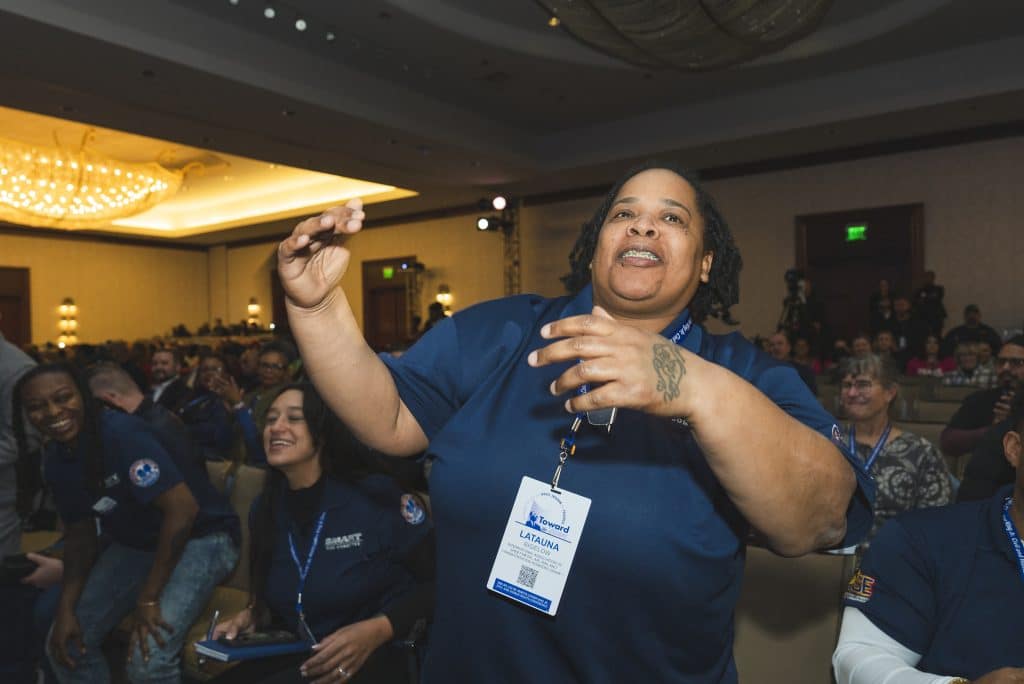
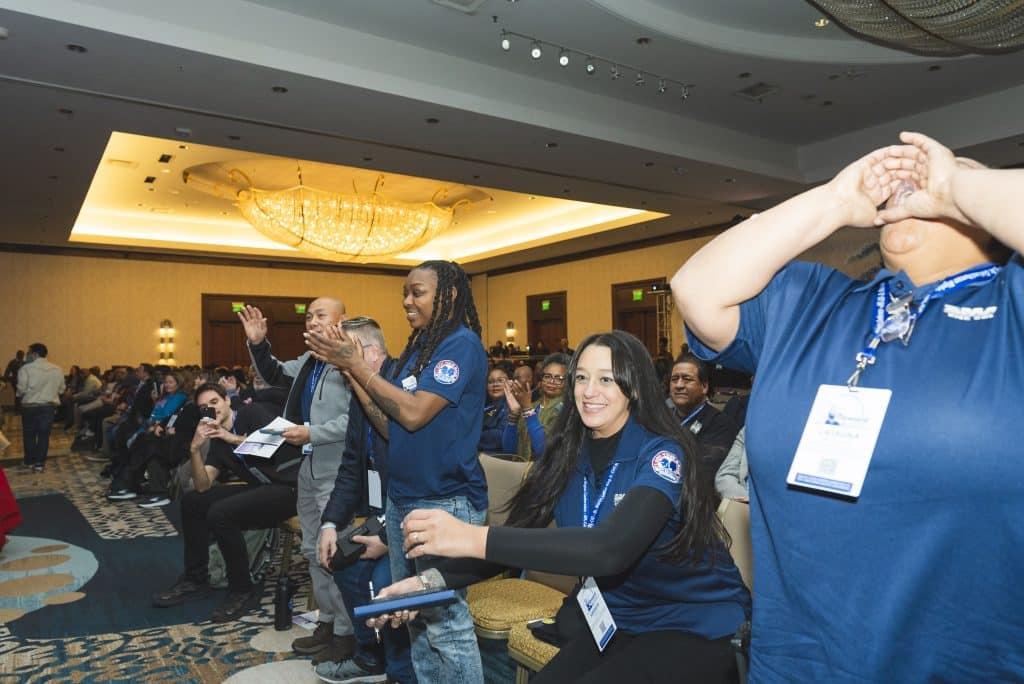
It was only fitting, then, that the Martin Luther King Conference brought RISE Committee members to Austin to build power. Dr. King famously spoke about the importance of trade unionism in the fight for racial justice, proclaiming: “…the labor-hater and labor-baiter is virtually always a twin-headed creature spewing anti-Negro epithets from one mouth and anti-labor propaganda from the other mouth.”
“[We’re] building worker power and [learning about] the whole message of Dr. King — civil rights along with economic justice,” explained RISE Committee member and Local 71 Director of Membership Development Andre Mayes.
The conference kicked off on Thursday, January 9. The opening session, featuring AFL-CIO President Liz Shuler, Texas AFL-CIO President Rick Levy and Texas AFL-CIO Secretary-Treasurer Leonard Aguilar, offered attendees words of resilience and motivation from a state that has been, politically, a bastion of anti-unionism.
Texas is the place, Levy said, where the government relentlessly union busts, attacks immigrant workers and tries to deprive people of their rights. It’s the place where the anti-union playbook of division has been constantly employed. But, Aguilar noted, we can fight that division: “The one thing we have in common across this land is our labor.” Levy echoed that sentiment, telling attendees what they already knew: We can defeat anti-worker attacks through our collective solidarity.
“Let’s commit ourselves together to the struggle for labor rights … civil rights … and to the fundamental ideal that there is no difference between those two fights,” he declared.
Shuler connected the themes emphasized by the two Texas labor leaders with the labor movement’s broader struggle. Anti-worker forces are conducting an all-out assault on everything SMART and fellow unions have fought for: worker safety laws and regulations, project labor agreements, Social Security and more, she said. Our greatest weapon in response is solidarity — symbolized, she noted, by the Service Employees International Union’s historic reaffiliation with the AFL-CIO, announced just one day prior.
“They want us to believe an immigrant worker making minimum wage is the source of our problems, not the CEO who handed himself more money than we will ever see in our lifetimes,” Shuler said. “They are terrified of what happens when we come together.”
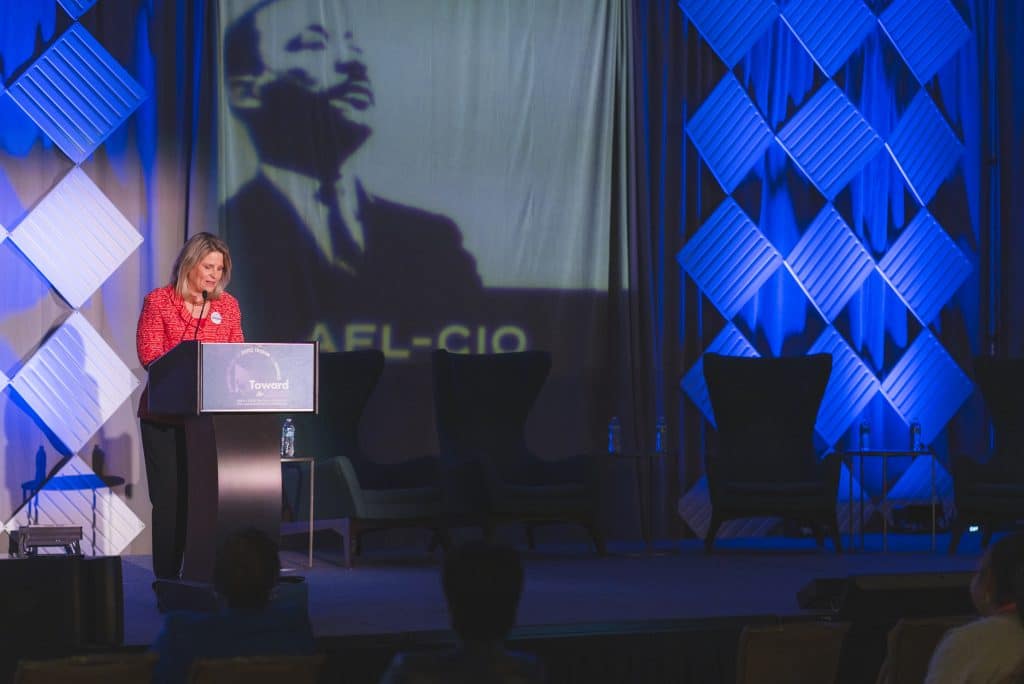
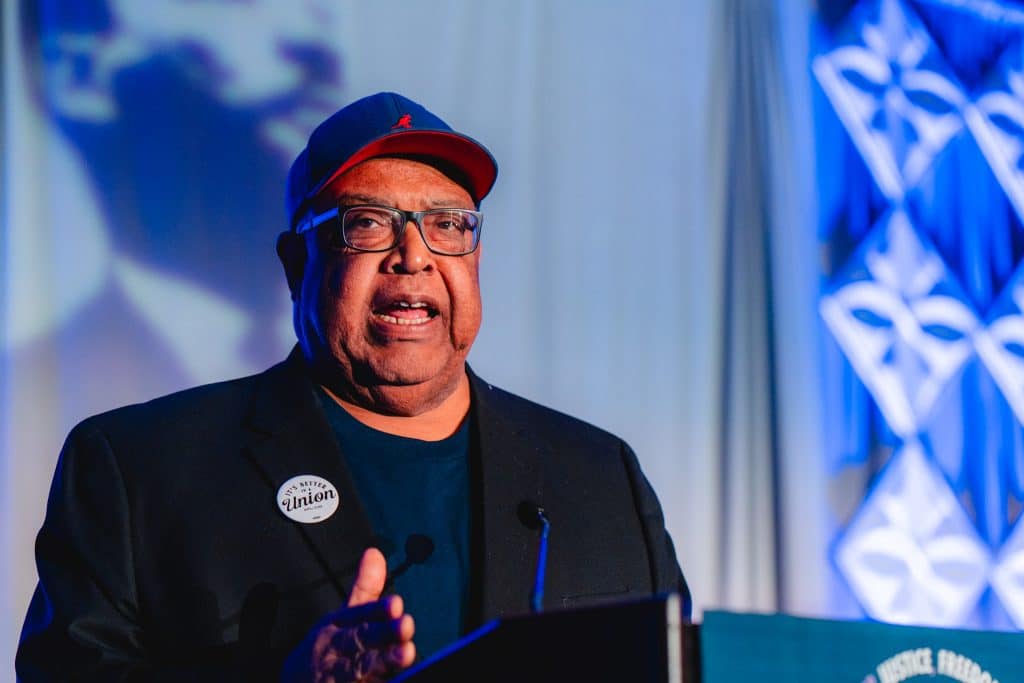
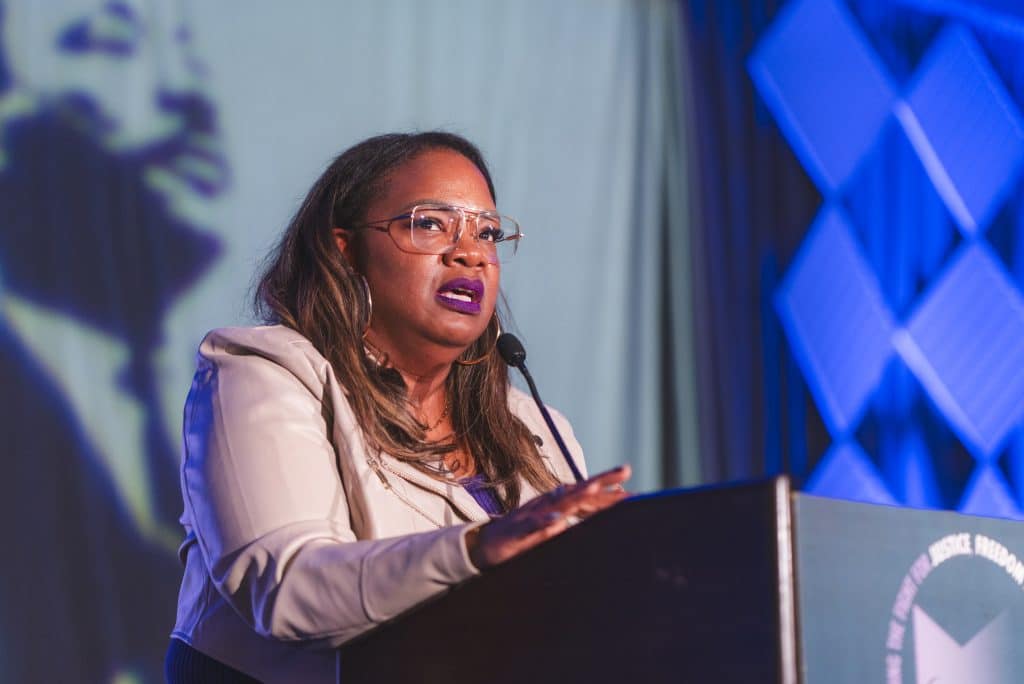
SEIU President April Verrett then took the stage to hammer home the message that, together, we can fight to win economic justice for workers. Whether public sector service employees or construction workers, she said, “we can no longer be satisfied with the status quo,” adding: “It is going to take every single one of us to make a powerful, collective demand.”
Members also heard from AFL-CIO Secretary-Treasurer Fred Redmond, SEIU Secretary-Treasurer Rocio Saenz, AFGE President Everett Kelley and AFT President Randi Weingarten during a Thursday afternoon session on “Bending the Arc: The Labor Movement’s Fight for Justice.” Speakers discussed how unions’ fight for power and safety in the workplace is by no means limited to jobsite advocacy: Unions promote the rights and dignity of working-class people on and off the job, from government employees taking care of our veterans to SMART production workers putting together HVAC systems for hospitals. Any attack on one of us is an attack on all, and we cannot let our movement be divided in the years to come.
Growing solidarity, putting it into action
Friday brought SMART members and fellow unionists together for a day of theory and practice. After a morning spent in session, the afternoon put workers into action, packing books for local kids and sending letters to legislators.
The day kicked off with the morning’s keynote speaker, Rep. Jasmine Crockett. The second-term United States representative fights hard for constituents in Texas’s 30th District — but, she noted, she works in Congress as an ally to ALL workers.
“I am here to be a representative of your voices. … Your presence here today tells me that you understand the importance of a movement … and what we can do united,” she declared.
Crockett has spent much of her career fighting against deregulation, attacks on worker safety and anti-union actors. She leaned on her experience to talk about the importance of focusing on the issues that matter to working people — at a time when some pundits were trying to blame the California wildfires on DEI programs, Crockett said, “this is your time to rise.” She urged attendees to mobilize, organize new and existing members, and make politicians uncomfortable as we work to prioritize working people:
“I want you beating down the doors of the U.S. House and the U.S. Senate.”
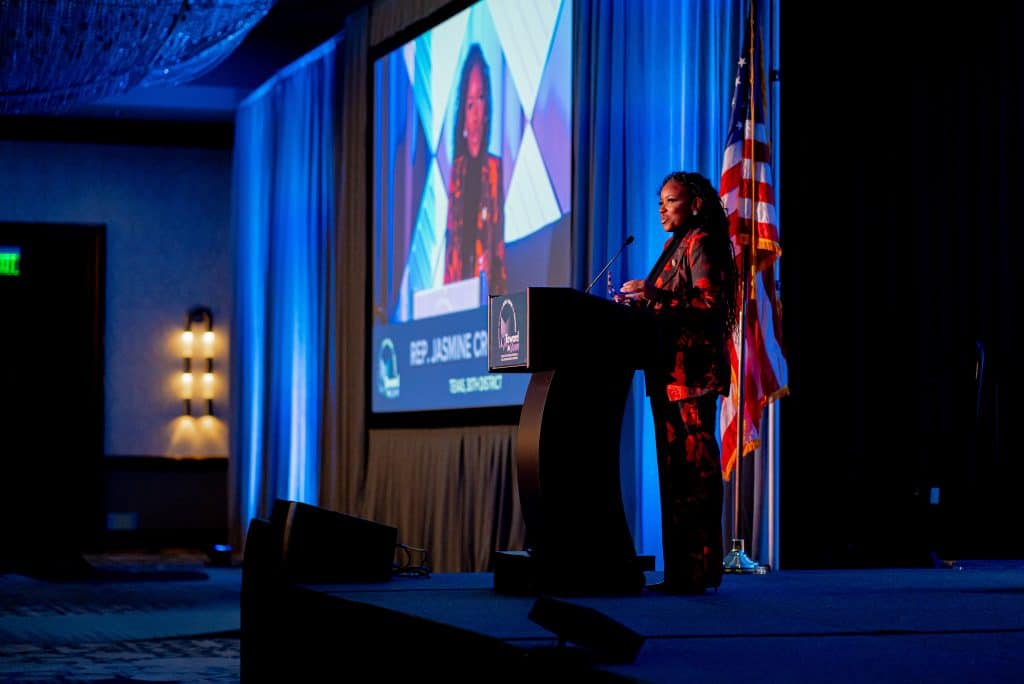
The labor movement spans every industry, with members ranging from sheet metal workers and freight railroaders to teachers, nurses, museum workers and beyond. What brings us together is our common fight for worker power and a just society — a fact highlighted during Friday morning’s panel, “Where Do We Go from Here? Advancing Dr. King’s Vision of a Unified Movement and the Guarantee of Economic Justice for All.”
Panelists Stacey Gates Davis, president of the Chicago Teachers Union; SEIU Texas President Elsa Flores; Brent Booker, general president of LIUNA; and Demond Drummer, director of strategy at The New School’s Institute on Race, Power and Political Economy, dove into a range of topics, from the radical labor action that helped end slavery, to the importance of building solidarity and coalitions across our movement, to the impact that the economy has on every other facet of our lives.
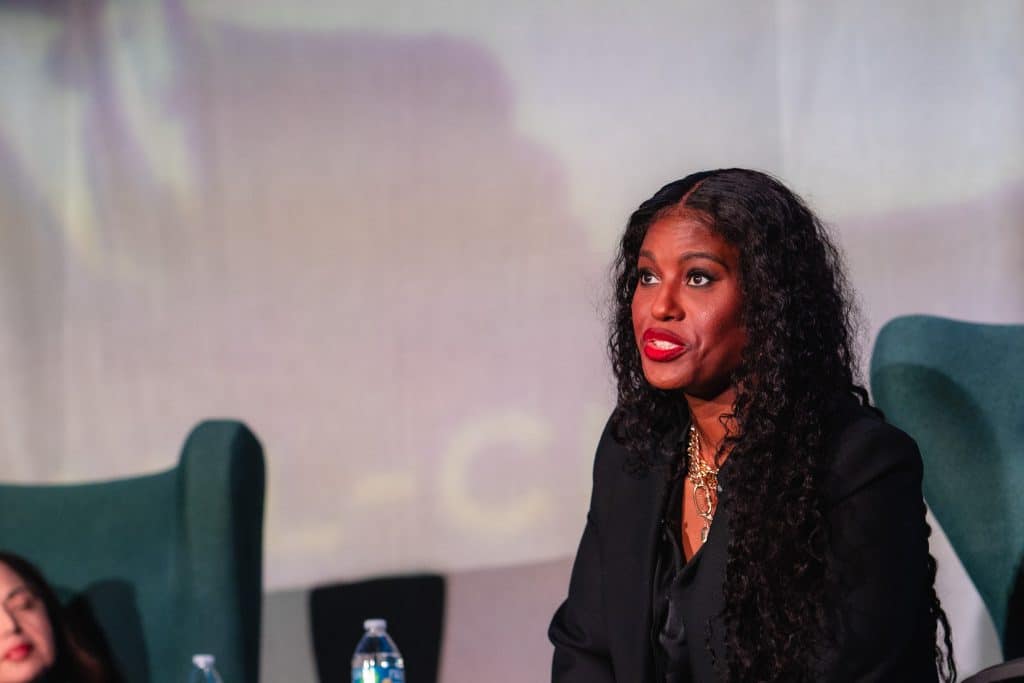
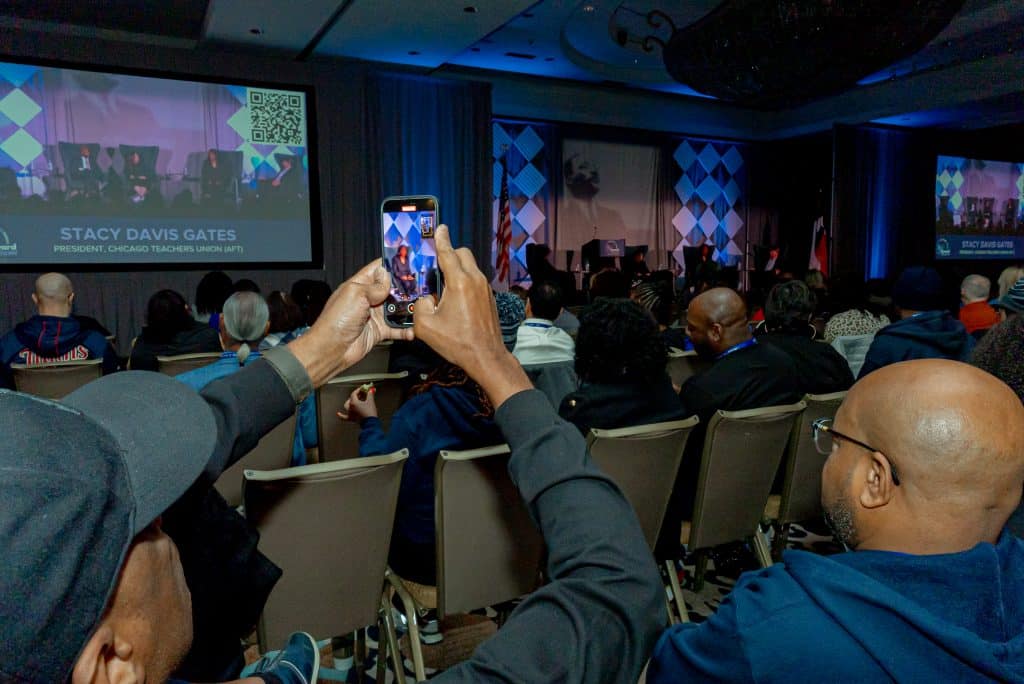
Violence and social disruption are the result of an economy where 90% of economic growth goes to the richest 1%, Drummer said; we are living in a “call to action” moment for organized labor. Panelists reminded attendees that “labor issues” don’t exist in a silo — union organizing is also public safety organizing, racial justice organizing, immigrant justice organizing.
United States Representative Greg Casar — a pro-worker champion who has stood with SMART on the PRO Act, legislation related to heat protection and more — addressed the conference in the afternoon, talking about the importance of unity between pro-worker politicians and the labor movement. Last year alone, anti-worker legislators fought to take away water breaks on Texas construction jobsites. Together, Casar said, we need to fight back: “We are the labor movement, we are the civil rights movement.”
Organized labor made significant progress in recent years, electing members of Congress who don’t just say the right things but actually act on behalf of SMART members. Nevertheless, Casar warned, there still exists a corporate class that desires a secondary class of workers — people who work more and get paid less, people who will be scared to organize. That’s what we’re fighting against, he said. And make no mistake: When someone else’s rights are suppressed at work, that sets the stage for union workers’ rights to be stripped next.
RISE Committee members then spent the afternoon doing what the SMART Army does best: engaging in community action. The American Federation of Teachers’ “Reading Opens the World” initiative aims to bring books to those who need them most but can’t afford them, helping kids develop literacy and find joy in reading. Attendees at the 2025 Martin Luther King Conference — including the SMART RISE Committee — played their part, sorting, labeling and packing books to distribute to Texas kids before writing letters to U.S. senators in support of our brothers and sisters working public sector jobs.
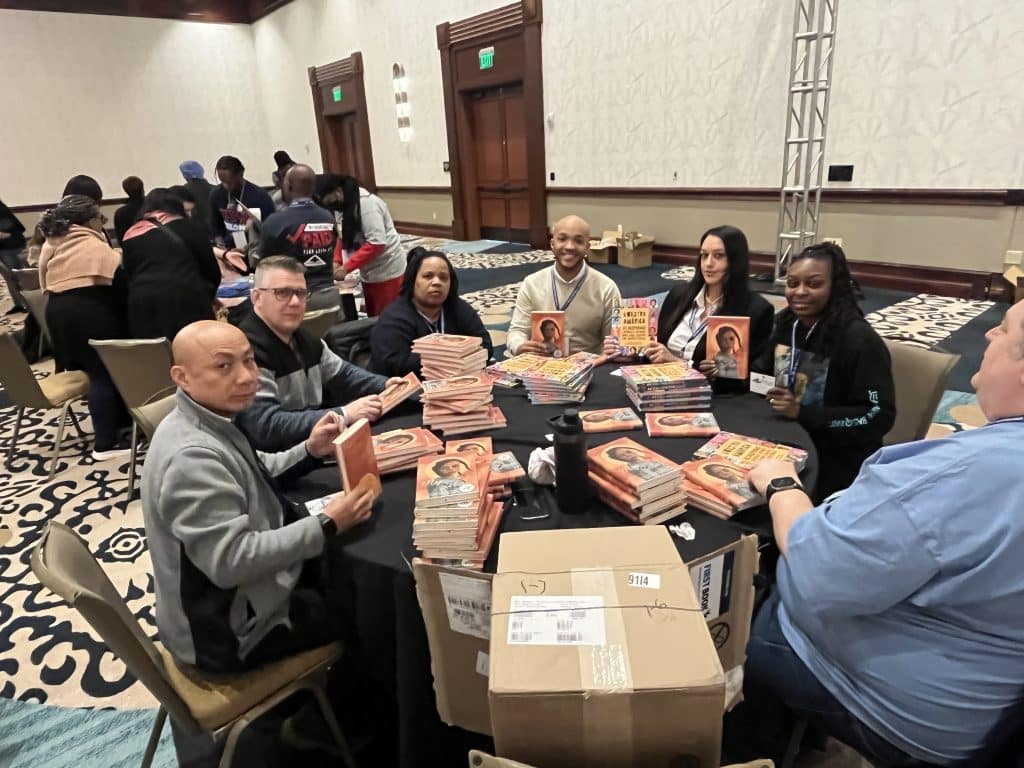
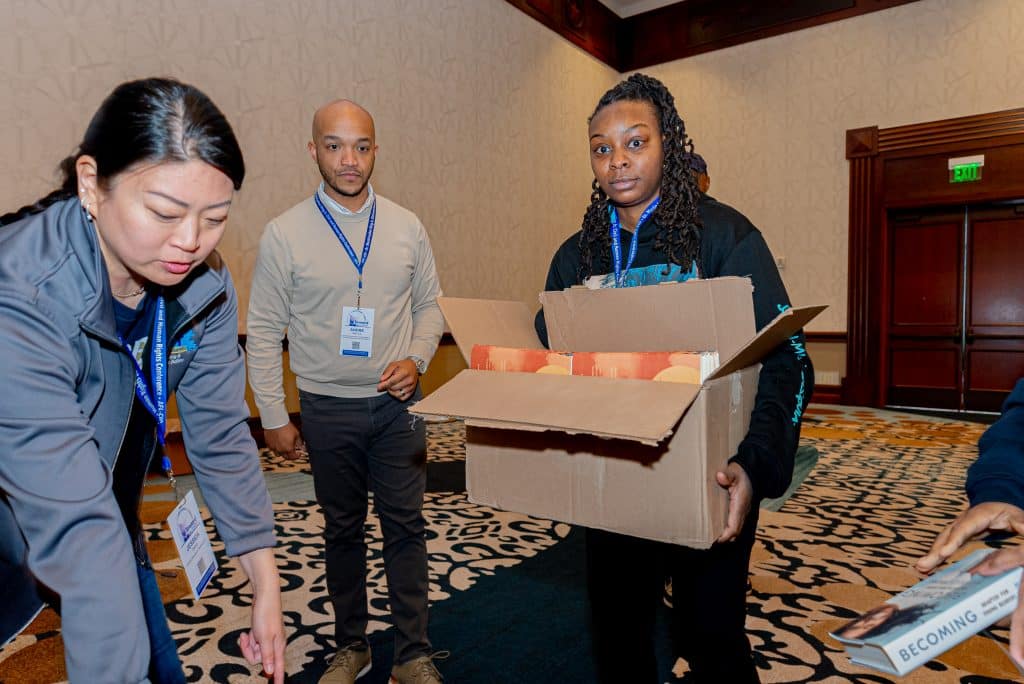
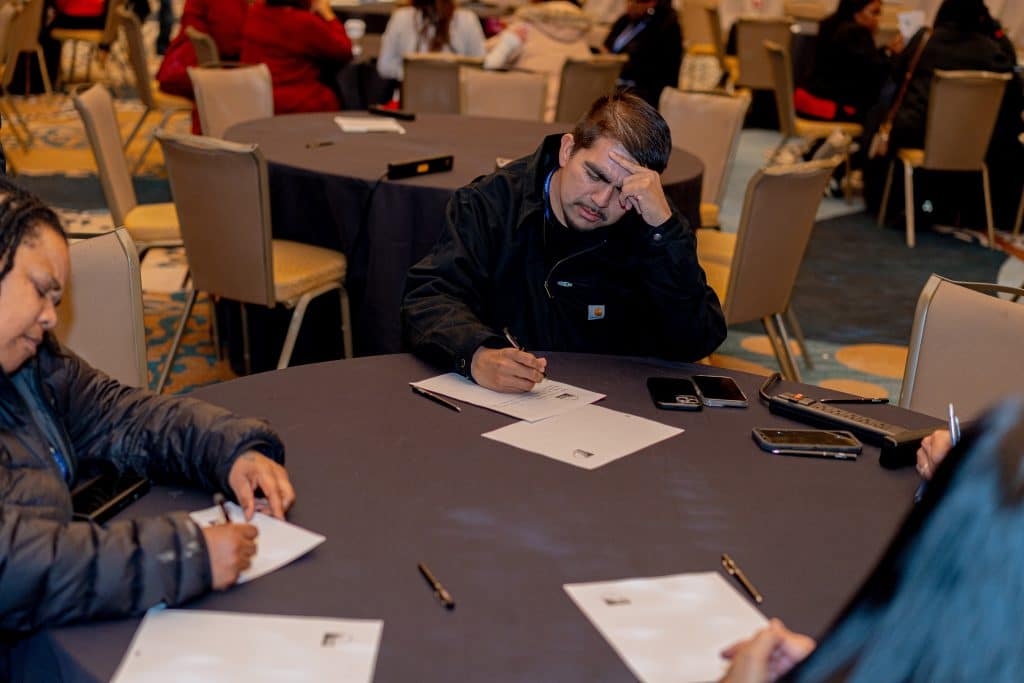
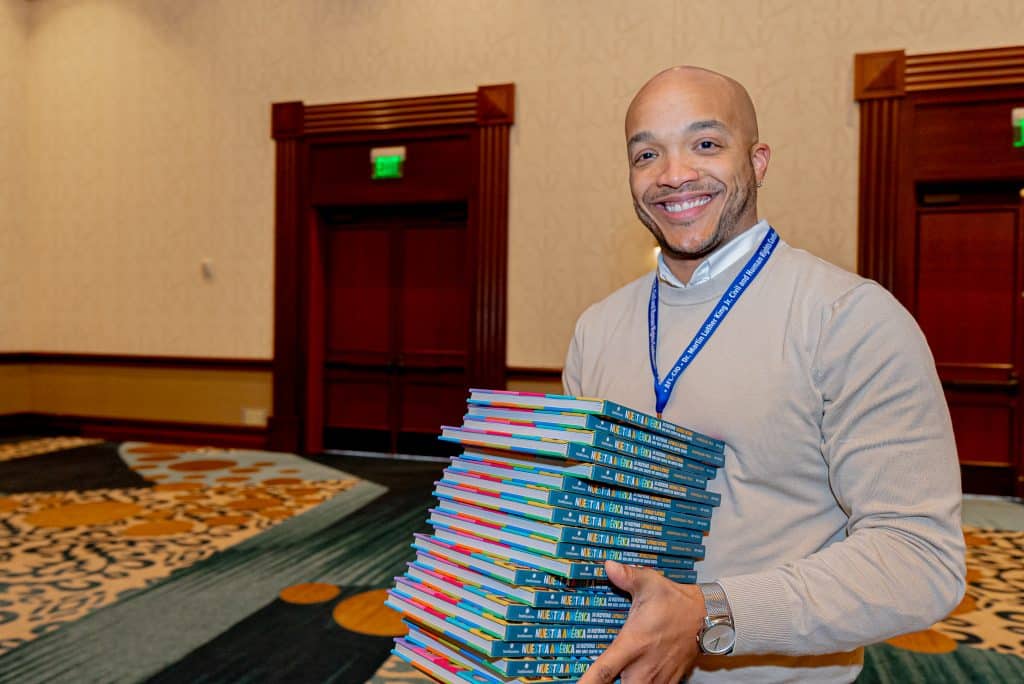
Looking ahead: plenary sessions and workshops help members strategize
Saturday’s conference itinerary prompted members of the RISE Committee to engage with workers from across North America in plenary sessions and workshops: proactively strengthening the bonds of solidarity that are our foundation.
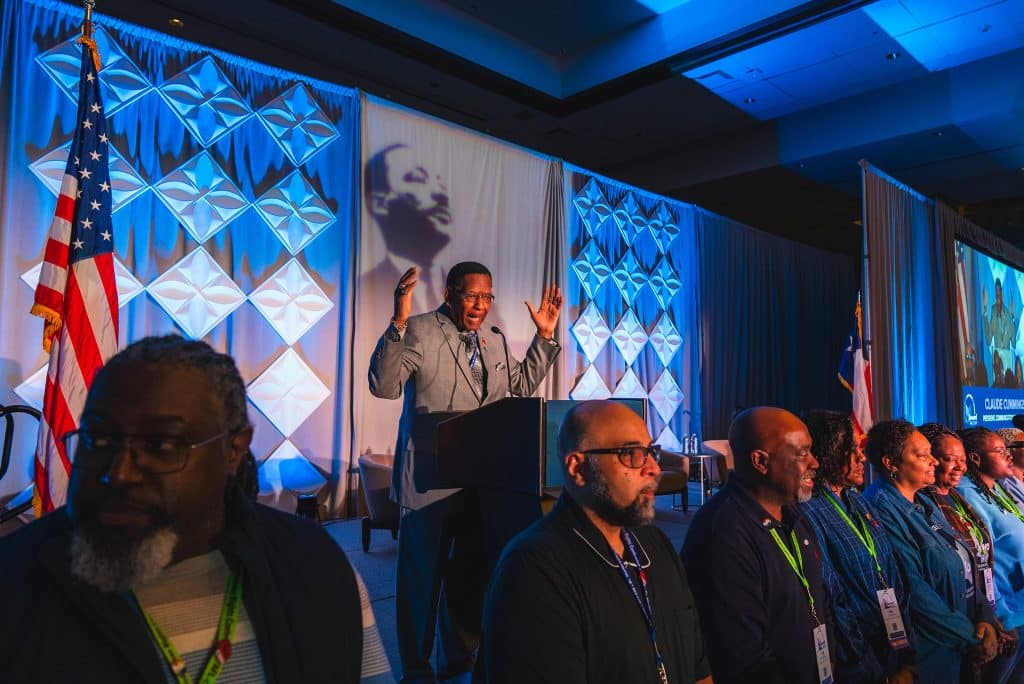
The morning kicked off with a speech from Communications Workers of America (CWA) President Claude Cummings. Gazing out from the podium, Cummings said: “We see the power of a unified labor movement working towards the dream of Dr. King.”
Now as in Dr. King’s day, he explained, pro-union sentiment is seen as a threat by those who want to profit off the backs of the working class. That’s why a unified labor movement is so imperative. The ruling class doesn’t prefer one union over another — they want to dissolve our entire movement.
“No one group is going to succeed while the others are denied justice, are denied the fruits of their labor, are denied basic human rights and dignity. That’s why we fight,” Cummings said, later adding: “We love our families and our country, and we want everyone in our communities to have the freedom to pursue their dreams and live their life.”
The morning concluded with another panel: “Rising Up: The Power of Solidarity and Forging a Winning Coalition.” Like much of the conference, the session focused on how issues that might appear to be separate — immigrants’ rights, reproductive freedom, collective bargaining protections, etc. — are closely tied together. And, panelists noted, a rigorous labor movement is crucial in order to take on these interconnected battles.
Following lunch, members spent the afternoon in breakout workshop sessions. As unions, we need to effectively tell our story of how working people can achieve economic justice and a good life through our movement. With that in mind, SMART members and Martin Luther King Conference attendees spent their chosen workshops focusing on storytelling exercises, solidarity mapping and developing action plans as they pertained to specific subject areas: defending collective bargaining, protecting LGBTQIA+ rights against legislative attacks, advancing the rights and protections of our immigrant union siblings and more.
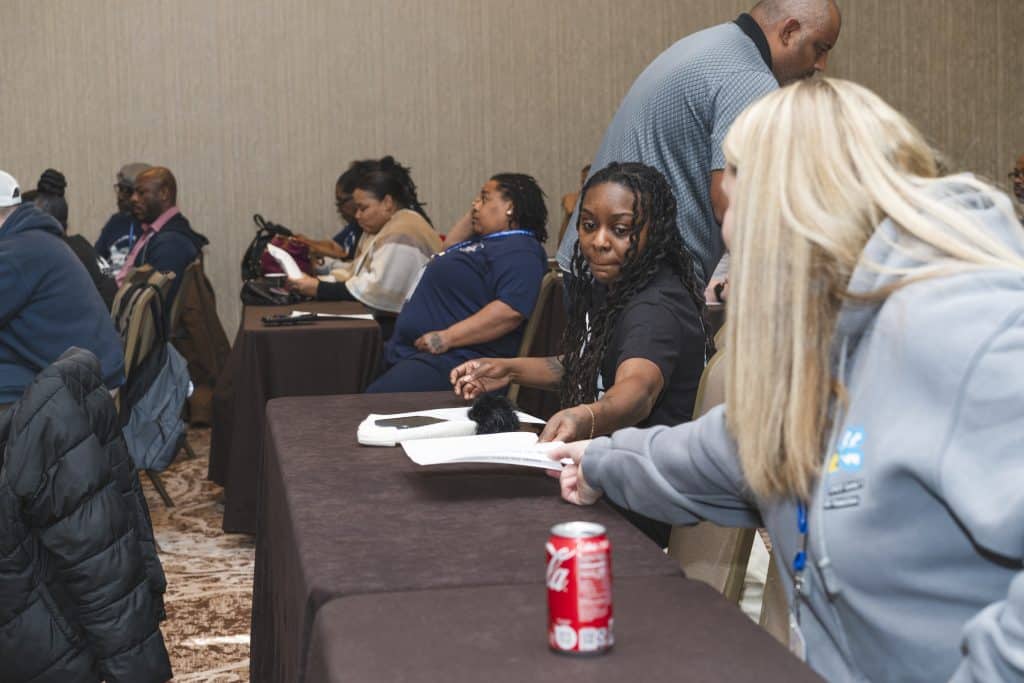
The night ended with the annual AFL-CIO Civil and Human Rights Awards, honoring union members who have gone above and beyond in the fight for justice and human dignity. The evening program also paid tribute to labor legend Bill Lucy — founder of the Coalition of Black Trade Unionists, longtime AFSCME secretary-treasurer and a fighter for justice throughout his life, including the famous 1968 Memphis sanitation strike and the labor movement’s support of anti-apartheid struggle in South Africa.
RISE Committee meets to secure a greater future for SMART
The RISE Committee wrapped up its weekend in Austin with a committee meeting on Sunday, where members reflected on the conference and went into detail on how to put the committee’s action plan in motion. From International and local union staff to rank-and-file sheet metal workers, these SMART brothers and sisters are tasked with the important work of securing our union’s future by bringing in and retaining workers from all backgrounds. During their meeting, members strategized implementation of a SMART Future Leaders initiative, a RISE cookbook and more.
Committee members considered the conference an overall success.
“I wanted to see how people who have the same ideals or the same drive as us, how we all can come together,” said Dale Clark, Local 24 (Columbus, Ohio) member, International Training Institute OSHA specialist and RISE Committee chair. “And it’s a beautiful thing. It refocused me.”


